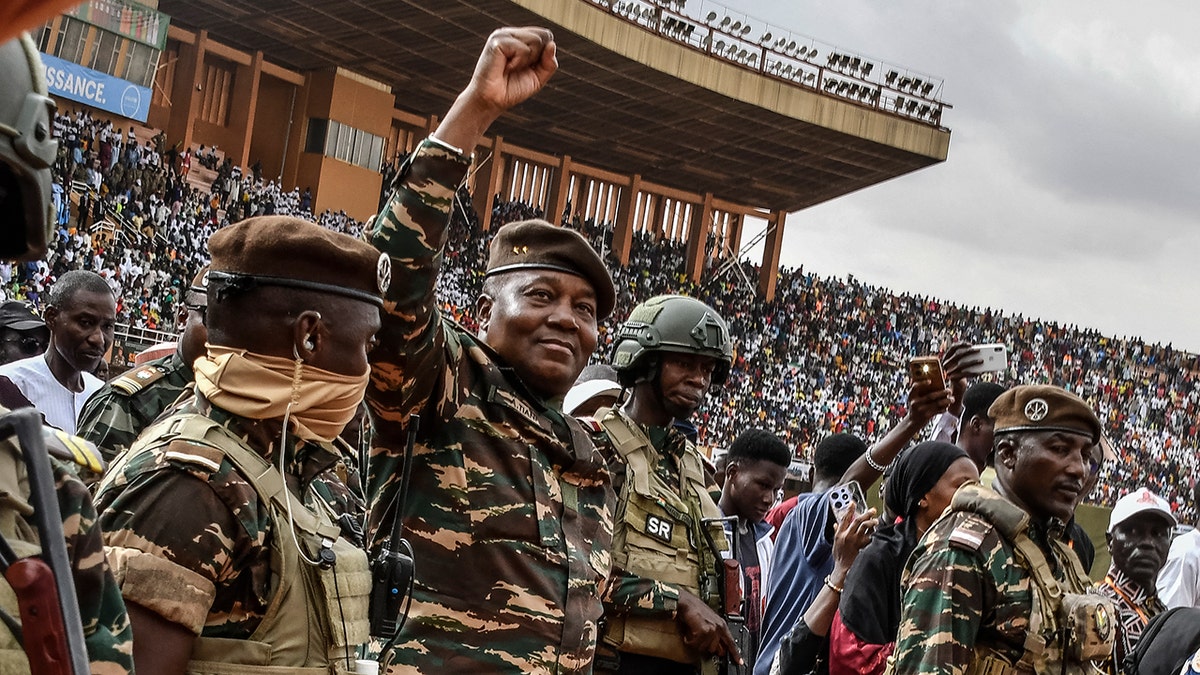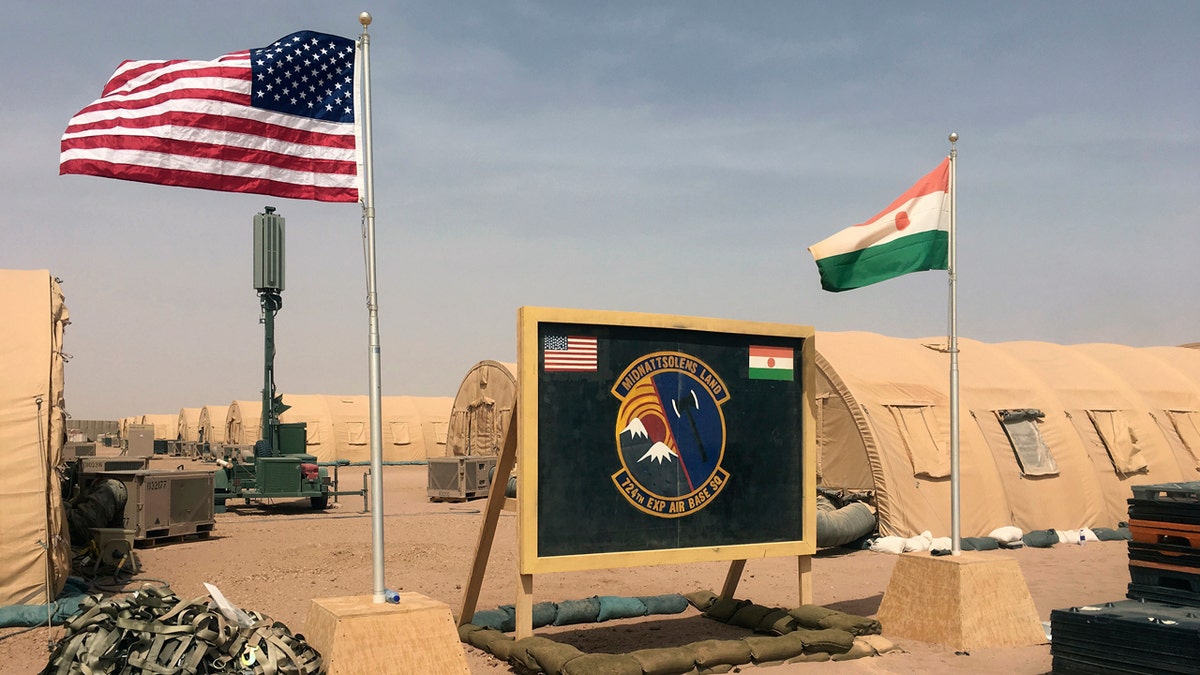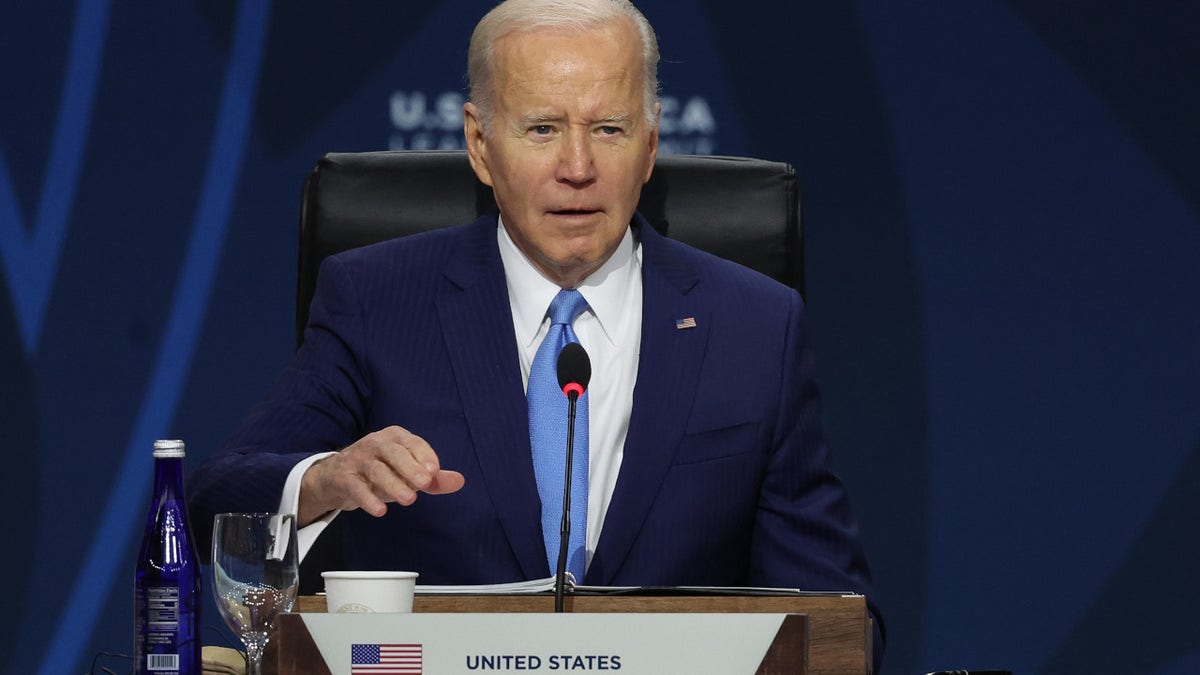Share this @internewscast.com
EXCLUSIVE: U.S. forces engaged in counter-terrorism efforts against al Qaeda and ISIS militants in Niger and other West African nations are reportedly “in the dark,” following what a former senior State Department official described to Fox News Digital as a policy initiative developed by the Biden administration.
An exclusive source within the U.S. military disclosed to Fox News Digital that the Pentagon now faces significant challenges, such as responding to critical situations like the October 21 kidnapping of an American citizen, due to what they term a “black hole” of intelligence.
Up until September of the previous year, the U.S. operated two airbases in Niger, from which surveillance drones equipped with advanced cameras were deployed to track terror group activities through dense forest regions. These drones played a crucial role in locating another American kidnapped in Niger back in 2020, during the Trump administration, eventually leading to a successful rescue by SEAL Team Six.
The military insider indicated that Niger had expressed a desire for the United States to maintain its military presence there. However, in March last year, tensions arose when Niger accused a U.S. delegation, sent by the Biden administration, of exhibiting a “condescending attitude,” prompting the expulsion of all American personnel from the bases.

General Abdourahamane Tiani, the leader of Niger’s military government, was seen greeting crowds on July 26, 2024, marking the first anniversary of his leadership. (Boureima Hama/AFP via Getty Images)
Speaking on national television on March 16, Niger’s government spokesperson, Amadou Adramane, criticized the conduct of the U.S. officials, stating that they failed to adhere to proper diplomatic protocols. “Niger regrets the intention of the American delegation to deny the sovereign Nigerien people the right to choose their partners and forms of partnerships,” Adramane asserted.
Adramane continued: “Also, the government of Niger forcefully denounces the condescending attitude accompanied by the threat of retaliation from the head of the American delegation towards the Nigerien government and people.”
Mary “Molly” Phee, then assistant secretary of state for the Biden administration, was tasked with leading the U.S. team in their meeting with Niger’s military leadership. Several sources reported that, as the delegation head, she demanded the country stop dealing with Russia and Iran, or face sanctions.
One source told Fox News Digital that she “flame sprayed” Niger’s leaders in the meeting, adding the “rant led us to being kicked out.” The Washington Post also reported the Nigerien leaders took particular umbrage at her remarks.
On Saturday, Phee, now retired, told Fox News Digital, “It’s a classic case of blame the messenger if you don’t like the message.”

The U.S. and Niger flags fly at a base camp in Agadez, Niger, on April 16, 2018. The U.S. handed over its last military base in Niger to the country’s authorities, officials announced on Aug. 5, 2024. (AP Photo/Carley Petesch, File)
Phee said she was following Biden administration policy, saying, “I’m a professional diplomat with more than 30 years of experience, and I was leading an interagency delegation dispatched to share a proposal developed and approved by the White House. The Nigerien junta rejected our offer and employed a misogynistic trope to deflect legitimate concerns about their conduct.”
Within months of the Phee delegation’s meeting with Niger’s leaders, all U.S. personnel, and their drones, had gone from Niger, leaving Washington, the military source claimed, with “no eyes in the sky.”
This led the then commander of the U.S. Africa Command, (AFRICOM), Marine Corps Gen. Michael Langley, to tell military chiefs at an African Chiefs of Defense Conference in May, “Since we’ve left Niger in September of last year, we’re observing a rise in attacks by violent extremist organizations, not only in Niger but across the Sahel to include Nigeria as well and emanating in – going into Burkina Faso and Mali.”
The general added that terror groups have both increased their capability and “proliferation of weapons,” concluding “unfortunately with our withdrawal from the region, we have lost our ability to monitor these terrorist groups closely.”
The U.S. military source told Fox News Digital that, “AFRICOM is severely resource constrained with only one base in Djibouti, and some smaller forces in Somalia and Kenya. The Biden administration kept cutting our budget… we are one of the largest land masses with all the problems — Russia, China, drugs and terrorism — but make up less than 1% of the Department of War’s budget.”
“Since the previous administration lost us access to Niger, the Americans and Western powers are completely blind and unable to quickly react to anything.”

President Joe Biden speaks during the Africa Leaders Summit on Dec. 15, 2022, in Washington, D.C. (Kevin Dietsch/Getty Images)
The source agreed that SEAL Team Six could conceivably be sent in again to rescue this new American kidnap victim. But he said first, the rescue team needs to know where the victim is. “If we had stayed, right now… Niger would be much safer, and we would have eyes in the sky to help find the American missionary… now we have nothing in the way of resources.”
Rescue, the source told us, is “difficult to impossible… first we have to find the guy.”
Analysts agreed that, particularly in Sahel’s hot conditions, it’s difficult for Washington’s other “eyes” – satellites – to be effective in tracking the victim.
The State Department has issued its highest possible travel advisory alert, stating, “Do not travel to Niger for any reason due to crime, unrest, terrorism, health, and kidnapping.”
Fox News Digital reached out to AFRICOM, the Department of War and the State Department on several occasions, but at the time of publication there had been no response.

















